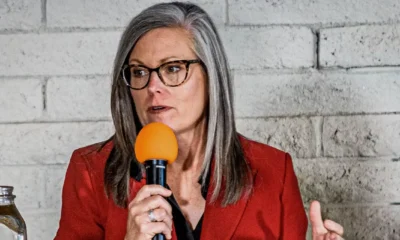Business
Council Approves Bold 13.6% Hike in Workforce Rent Cap

The Sedona City Council approved a 13.6% increase in the rental rate cap for the city’s Rent Local program during a meeting on April 8, extending discussions beyond the scheduled five minutes to 41 minutes. This adjustment aims to enhance participation in a program established in August 2022, designed to encourage property owners to lease their homes for over 30 days.
Under the Rent Local initiative, property owners can receive a financial incentive in exchange for committing to avoid short-term rentals for one year. The cap for monthly rental rates will rise from $2,200 to $2,500 in an effort to align more closely with the prevailing market rates. Housing Manager Jeanne Blum emphasized this change as vital for stimulating participation from landlords.
Blum noted that many potential applicants feel discouraged by the current cap, stating, “Most potential participants have been discouraged because the rental cap is below what they can bear.” She provided data indicating that average monthly rents in Sedona range significantly higher than the existing cap, with one-bedroom units averaging $1,762 and three-bedroom units at $3,553.
Councilwoman Kathy Kinsella questioned the decision not to raise the cap further to $2,700. In response, Blum dismissed this suggestion, emphasizing that the increase to $2,500 represents a balanced approach. Raising the cap in tandem with a one-time incentive is intended to make the program more attractive to landlords.
The one-time incentives included in the Rent Local program vary with property size, offering up to $10,000 for three-bedroom units. Despite available funds, only seven properties have enrolled in the program. Blum pointed out that long-term rentals can significantly reduce maintenance expenses for property owners.
Vice Mayor Holli Ploog remarked on the retention of participants, noting that only three households chose to renew their leases for a second year. “Maybe that’s why only three households have renewed their leases in year two,” she said. Blum suggested that extending the incentives to multiple years could bolster program stability.
Councilman Brian Fultz expressed concern about the limited effectiveness of the program, highlighting an increase in short-term rentals despite the program’s intentions. The number of registered short-term rentals in Sedona grew by 6.4% from 2018 to 2024, prompting questions about the program’s long-term viability.
Public comments supported the council’s initiatives, particularly focusing on the need for affordable two- to three-bedroom housing. Lindsey Hammersmith, a local resident, pointed out the unsustainable nature of short-term rentals in the current market, raising concerns about the broader implications for housing affordability.
In a close examination of the program, Fultz expressed skepticism about its success while noting the significant revenue potential from short-term rentals, which average $3,200 per month. Conversely, Councilwoman Melissa Dunn agreed to try the new cap but highlighted fears that it may merely delay homelessness rather than provide a lasting solution.
To forge a sustainable path forward, Councilman Derek Pfaff proposed implementing incentives that increase for those who maintain their properties within the program long-term. Highlighting the challenges of competing with market rates, various council members reiterated the need to find a delicate balance in supporting local housing needs.
Ultimately, the council voted unanimously to increase the rental cap, moving forward with hopes that the change will encourage greater participation in the Rent Local program.


















